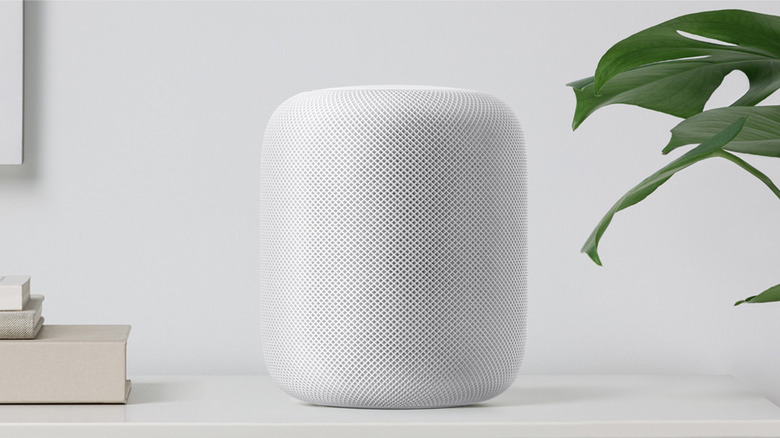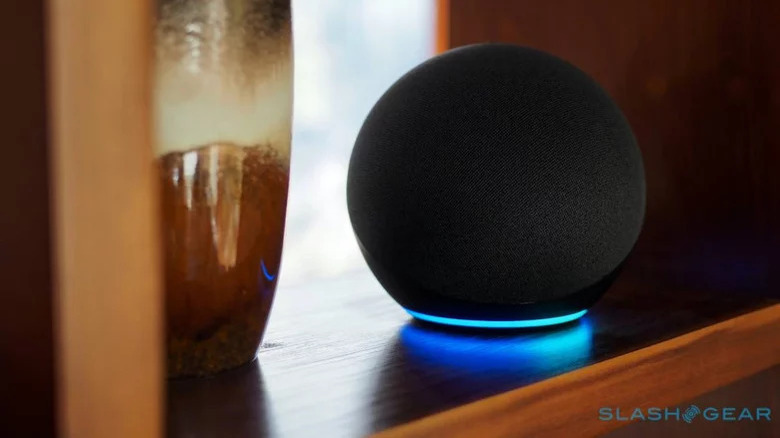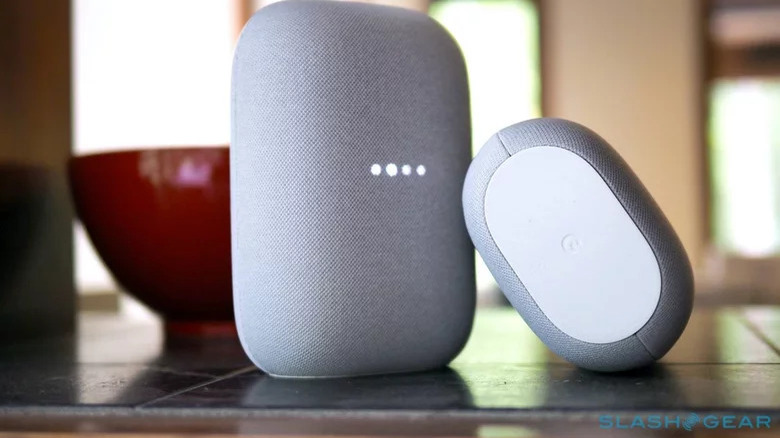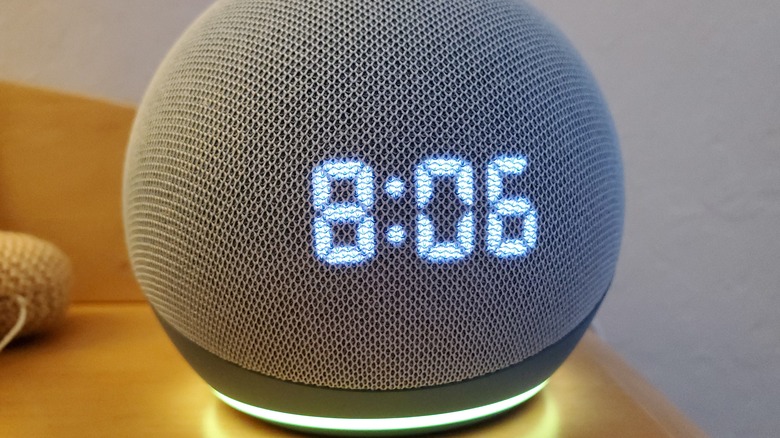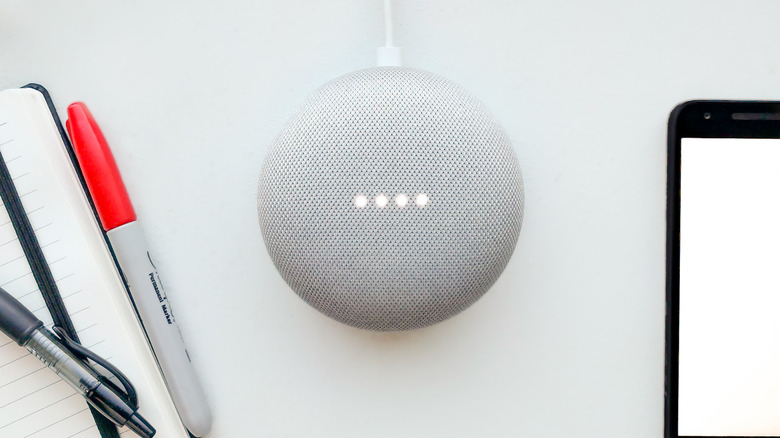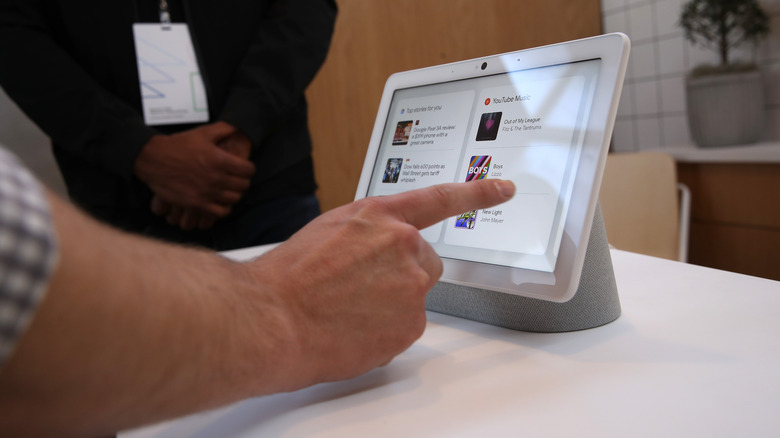5 Affordable Apple HomePod Alternatives
The Apple HomePod is a smart speaker with next-level audio quality thanks to its spatial audio technology, made possible by its Apple S7 chipset. However, not everyone has roughly $300 to spend on a smart speaker, especially if they want one in multiple rooms, nor does everyone want to spend that much. Luckily, in this smart home renaissance, there are plenty of alternatives to choose from.
A good smart speaker can make all the difference because it essentially acts as the hub for a smart home. The speaker you choose also dictates the ecosystem you use to communicate with the rest of your smart devices. If you go with an Amazon Echo, you'll set up routines and tasks in the Alexa app. If you go with a Google Nest, you'll use the Google Assistant to set everything up.
Amazon offers a wide variety of speakers that are $100 and under, with only a few Google devices exceeding that $100 barrier. That's the price tag we define as affordable. You'll be surprised how many quality options are available at that price point, which is perfect if you don't want to spend too much on a speaker.
Amazon Echo (4th Generation)
Despite coming out in 2020, Amazon's 4th generation Echo remains a top contender among smart speakers. SlashGear's Chris Davies gave it a 9-out-of-10 rating in his Amazon Echo review, and its current price doesn't even exceed $70. You don't necessarily need the newest, flashiest device to receive premium quality.
The 4th generation of Echo ditches its cylindrical design in favor of a spherical casing so it can fit two 0.8-inch tweeters and a 3-inch woofer. In comparison, the 3rd generation Echo only had one 0.8-inch tweeter. The 4th generation is a step up in a couple of other ways.
It will send you alerts when you're not home if it detects glass breaking or a smoke alarm going off. There might be better-sounding speakers than this one, but for its current $65 price tag, it's a challenge to beat. The Echo can easily be heard over the sounds of a busy kitchen, making it perfect for listening to audio while cooking. Speaking of noisy kitchens, the Echo easily picks up its wake word even in the noisiest rooms, eliminating the need to repeat yourself.
Google Nest Audio
The direct competitor to Amazon's Echo is Google's Nest Audio. The sound of the Nest Audio will easily fill small and medium-sized rooms. Even with its original $100 price tag, it's affordable enough to buy multiple copies for different rooms or group them together to form stereo pairs. Walmart did sell certain models for a hefty discount at one time, so that's worth keeping an eye out for.
With other smart speakers coming as spheres or cylinders, the Nest Audio sets itself apart by looking more like a pillow. If you don't want to use voice controls, Google's Nest Audio has a back switch to shut off its microphones. This lets you use the touch-sensitive buttons hidden behind the upper front edge for volume, the Assistant, play, and pause. However, those controls might be difficult for new users at first.
The Ambient IQ technology makes the assistant easy to understand as it automatically lowers any audio when it speaks. Additionally, it adjusts its volume according to external noises, such as coffee grinders and electric shavers. According to our Google Nest review, "You can actually hear the Assistant adjust in volume and tone in reaction."
Amazon Echo Dot with clock (5th Gen)
If you want something with a little more physical presence than a simple speaker but still don't need a display, the 5th generation of Amazon's Echo Dot might be perfect. Unlike the Echo, the Echo Dot displays the time with a digital clock that can prove useful when your phone isn't nearby. It also displays any timers you set and gives a numerical representation of its current volume.
As of April 2024, the 5th generation of the Echo Dot sits at $60 on Amazon. Honorable mention to the version without the clock, which is $10 cheaper, and just as useful as this iteration. We ranked the Amazon Echo Dot (5th gen) as one of the best home assistant devices for 2023, and can easily carry that torch into 2024.
Its compact size and shape make it easy to place anywhere in the house without it being an eye sore. Thanks to a 1.7-inch driver at the front of the speaker, the sound in the 5th gen Echo Dot provides clearer vocals than previous generations. Per CNET's review of the device, the outlet emphasized that if Alexa is your smart assistant of choice, the Echo Dot is a great choice since "it's compact, it sounds decent, and it's affordable."
Google Nest Mini
The retail price for a Google Nest Mini is $49.99, but some places, like Walmart, sell it for a few dollars less. If you want to stay in Google's ecosystem, it's the most affordable way to add the Google Assistant to your house. It's a small, unassuming, hockey puck-shaped device that can find a home anywhere in the house.
The speakers aren't as good or as loud as other smart speakers on the market, but that's to be expected from such a small device with an equally small price tag. That doesn't negate its usefulness, however. If you already have a Nest Audio, but don't want to shell out $100 for additional units around the house, the Google Nest Mini is an affordable option for adding coverage in each room that pairs with the Nest Audio.
Don't underestimate the size of this speaker. It can connect to your smart home ecosystem, giving you control over everything from your TV, lights, and even the thermostat with just your voice. While it might not have hidden touch-sensitive controls like its Nest Audio counterpart, it's a little powerhouse of a speaker.
Google Nest Hub (2nd Gen)
Possibly the best feature tech companies added to their smart speakers was a display. Smart speakers with displays offer so much more versatility by showing results from websites when you ask the virtual assistant a question.
Google released the 2nd generation Nest Hub in 2021, which provides users with a 7-inch, edge-to-edge glass touchscreen with a 1280x800 resolution. This display's advancement over its predecessor is the inclusion of Google's Soli radar technology, which allows owners to track their sleep without a wearable device like a wristband.
That same technology lets you control music playback and snooze alarms with simple gestures without ever touching the display. The Google Nest Hub is quite a bargain for $99, especially when you consider that it can manage the rest of your smart devices as well. A new machine learning chip and a third microphone make Google's AI more responsive than its previous generation.
How we chose the devices
We used a few guidelines to determine suitable smart speakers for this article. First, cost played a significant role — everybody might have a different definition of affordable. For this article, we stuck with smart speakers that were $100 and under. The Apple Homepod costs $300 from the Apple website, but we didn't want to choose any smart speaker that was more expensive than that. We wanted to offer solutions for consumers who didn't want to break the bank in order to have a virtual assistant in their homes.
Second, we prioritized personal experience with each of the devices. That meant turning to SlashGear's expert writers and using their first-hand knowledge. If that wasn't an option, we turned to other expert sources like CNET and its reviews. Lastly, we opted to select strictly options that were speakers only since the Apple Homepod is only a speaker. However, we included one option with a screen to offer more variety.
